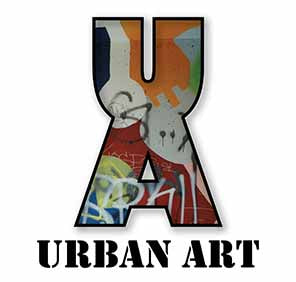I have wanted to be an artist since I was a little kid. In my child’s mind, being an artist was glamorous. It included fame; my work would hang in museums. Money, I could buy a house for my parents where they could have their own bedrooms (I shared a bedroom with my sister, so having your own room was a huge deal)! And acknowledgment; people worldwide would know my name, and I would be another Michelangelo!

Me as a teenager, and dressing the part of the artist!
Photo courtesy of Robert Wilcox.
I started studying oil painting at age ten and later completed an undergrad and masters in Studio Art. After grad school, my paintings hung in juried shows, mainly in the Midwest. I found life after art school challenging, as many artists do. Gone were the critiques and structure. I had developed the habit of painting at home, so I didn’t lose studio space, as some art students do, upon graduation, but often, it was a small section of my bedroom in an apartment.
I had to unlearn some of the attitudes I acquired in art school. Somewhere along the line, I began filling myself with stories about what a “true artist’ could and couldn’t do or be. I was a complete failure by the standards I set in my head. So, three or four years after grad school, I quit painting.

During the non-painting years, I still hoped to return to my art. One morning, I decided never to paint again; oddly, a month later, I picked up a brush and returned to painting. I can’t explain it, but I think it had something to do with “letting it all go” that made me want to paint again.
Upon my return, I realized how deep some of my misconceptions about what a visual artist was. I had spent years telling myself things like “only serious artists paint abstraction” or “oil paints are what a professional artist uses to create.” What a bunch of horse manure! During that time, I learned a lot about my artistic beliefs and grew in my art.
I didn’t show nor sell; I was content to paint. The desire to show, after a long period of not, came sometime in the last ten years.
I was fortunate to teach the visual arts from 2006 through 2018. It was a marvelous time in my life as an artist. I learned much from my students, which made me a better artist. Helping others understand their art and how to achieve their goals is a perfect way to help yourself with your personal artistic discovery. During this period, I raised a child as a single parent while teaching full-time, so painting was assigned to the weekends, but I was content.
I never was serious about selling my work until about three years ago, when I decided to sell online. I am not sure that decision has been the best for my artistic growth. Part of the process I enjoyed was building my website(s) and photographing the work. I also expanded to include photography, which I enjoy. I discovered that I enjoy writing blogs. As a person with dyslexia, I never in my wildest dreams thought I would feel that way about writing. All of that was positive.

But selling my work also seems to have brought an existential crisis. I understand that the quality of my work isn’t about a price tag or sale, but somewhere in the process of attempting to sell my paintings, I have lost track of what I want to be as an artist.
During the last year, I turned to fellow artists, friends, family, a very helpful boyfriend, and the internet in hopes of sorting out what I’m seeking. I have yet to come to a conclusion, but I have been asked some interesting questions to consider. I have read some helpful articles, and a few have made me angry. In my next blog, I will share more on this topic.

